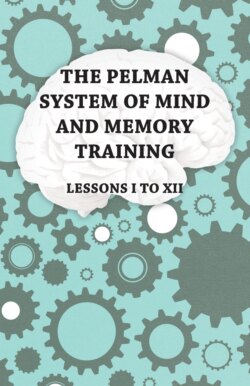Читать книгу The Pelman System of Mind and Memory Training - Lessons I to XII - Анон - Страница 58
На сайте Литреса книга снята с продажи.
X. THE RELATION OF KNOWLEDGE TO ENERGY.
Оглавление15. We have met scores of men with adequate knowledge, but lacking in energy, and it is very remarkable to find how little some men know—men, too, in most commanding positions. Take the case of Charles Stuart Parnell. He was regarded by his followers as a sort of human deity; they looked upon his words as law from which there could be no appeal. And how did he view his followers? “In politics as in war,” he averred, “there are no men, only weapons . . . . while I am leader, they are my tools, or they go.” Here, then, is a man of striking and commanding personality; and yet he was so ignorant of literature that he thought he had made a mistake when he called Shakespeare a poet! There are hundreds of men in the country with greater knowledge, more accurate scholarship, keener conscience and higher ideals than those who conduct the affairs of the State, but it is action that counts. And behind action is energy, force, motive power—give it what name you please, so long as you see its importance as a factor in personal development. We do not, of course, undervalue the need of knowledge; we are simply stating the fact that it is not so important as we have been led to assume. Knowledge of the details of one’s own business is naturally a primary matter: ignorance of other things is apparently no drawback at all, except as it detracts from self-culture. Even so, we should be inclined to bracket energy and knowledge thus:—
giving energy the first place. We can remember one instance at least where a man knew more about the science and art of provision dealing than any other man of his age, but he did not make a success of his knowledge—the power of initiative was lacking—also the ability to act in a crisis.
